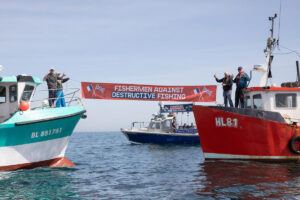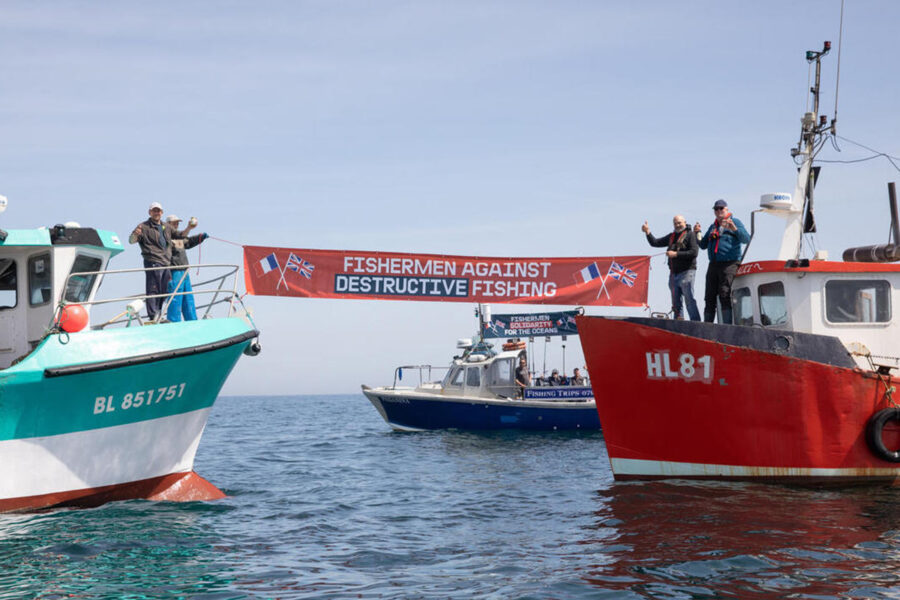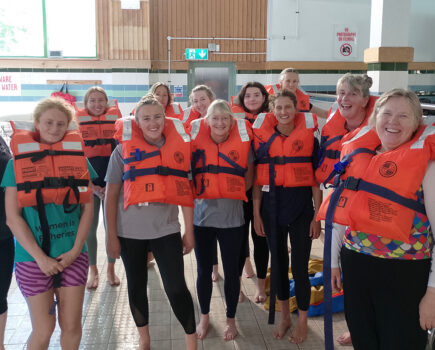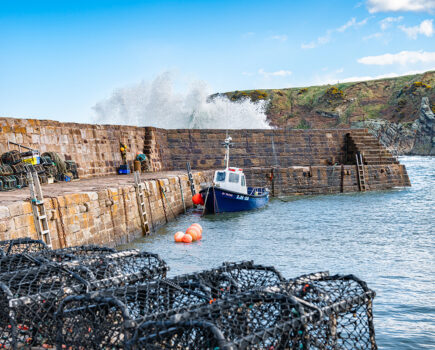Urgent need for action, not more consultation, say inshore leaders on both sides of Channel
Industry reaction to the long-awaited outcome of the consultation on fly-shooting in the English Channel echoed the frustrations of many fishermen, who have been campaigning on the issue for many years and see the exercise as a largely wasted opportunity.
The consultation results, announced as part of a flurry of activity on fisheries by Defra shortly before parliament went into summer recess, showed a clear majority of respondents in favour of restrictions or management measures in the fishery.
However, other than confirming an intention to remove the derogation that allows 40mm codends when targeting squid, which Defra says will be enacted by means of a statutory instrument to be laid before parliament at some undetermined future date, all other decisions have been deferred.
The technical measures, including limits on gear weight and dimensions, and a possible engine cap, have instead been included in a consultation on the Fisheries Management Plan (FMP) for non-quota species, which was announced at the same time.
NUTFA director Jerry Percy, a longstanding and outspoken critic of the lack of action to manage the fly-shooting fleet, told FN: “Our concern, of course, about many of the FMPs being consulted on, as well as seining itself, is the time this all takes before effective management is in place.
“We’ve been meeting Defra about our concerns for several years, and not only have they opted for the most basic restriction, but also are now talking about introducing it later this year or even in 2024!

Jerry Percy (far right) mid-Channel, where English and French boats held a joint protest with Greenpeace in May last year to protest against fly-shooting effort and other large vessels that they said were threatening their livelihoods. (Photo: Greenpeace)
“The damage to the fishery is being done every day, and one luxury we don’t have to deal with this is time.
“The FMPs themselves are a step forward, and a reflection of the immense hard work put in by many bodies, including the Seafish team, to get them to the stage of public consultation.”
Olivier Leprêtre, who has represented the French inshore industry on the matter and long campaigned for the introduction of management measures in the fishery, told FN: “I have been fishing with this technique since 2017, and see the urgency of taking management measures in the fly-shooting fishery in the English Channel.
“As a method of fishing, it is no more destructive than any other technique if used sensibly – it is the sheer level of fishing effort in the sector that has had such an impact. There are far too many boats in the English Channel. It is first necessary to put in place a freeze on fishing effort through capping existing licences, and no longer allow in additional fly-shooters, other than the replacement of old boats.
“These proposed measures must extend beyond British waters into French and European waters if they are to help sustain our fisheries in the long term.
“As mentioned in the consultation, there is no argument to justify maintaining the 40mm squid derogation. We need a minimum mesh size of at least 80mm. In my opinion it is the diameter of the seine rope and in particular the weight that must be reduced to minimise the impact on the seabed. A reduction in the permitted seine rope length will also reduce the risk of gear conflict with other fleets, as well as of overfishing.
“The most effective management tool would be to limit the number of days at sea for the fly-shooting fleet, as well as seasonal closures. I’m less sure about the argument for limiting engine size. In this fishery, it is gear and hauling power that determine fishing effort, not engine power, and the larger vessels, quite simply, are safer vessels, and we should not legislate against that.”
One Dutch industry commentator confirmed to FN that the moves to remove the 40mm squid derogation ‘is not causing any clamour in the Netherlands’. “The 60-65mm option is sometimes used, but rarely,” he added. There is, however, a general frustration that a sector that voluntarily moved away from beam trawling, and reduced its carbon footprints considerably, as well as diversifing into new fisheries, has now shifted from being a ‘green option’ to one that ‘suddenly is the only group responsible for overfishing’.
The Channel demersal non- quota species FMP is open for comment until 1 October, and as one PO chief executive put it to FN: “On these technical issues relating to fly-shooting we simply are forwarding the same response that we sent for the first consultation. Nothing has changed since then, other than that the need to do something in the fishery becomes ever more urgent.”
This story was taken from the latest issue of Fishing News. For more up-to-date and in-depth reports on the UK and Irish commercial fishing sector, subscribe to Fishing News here or buy the latest single issue for just £3.30 here.
Sign up to Fishing News’ FREE e-newsletter here.








